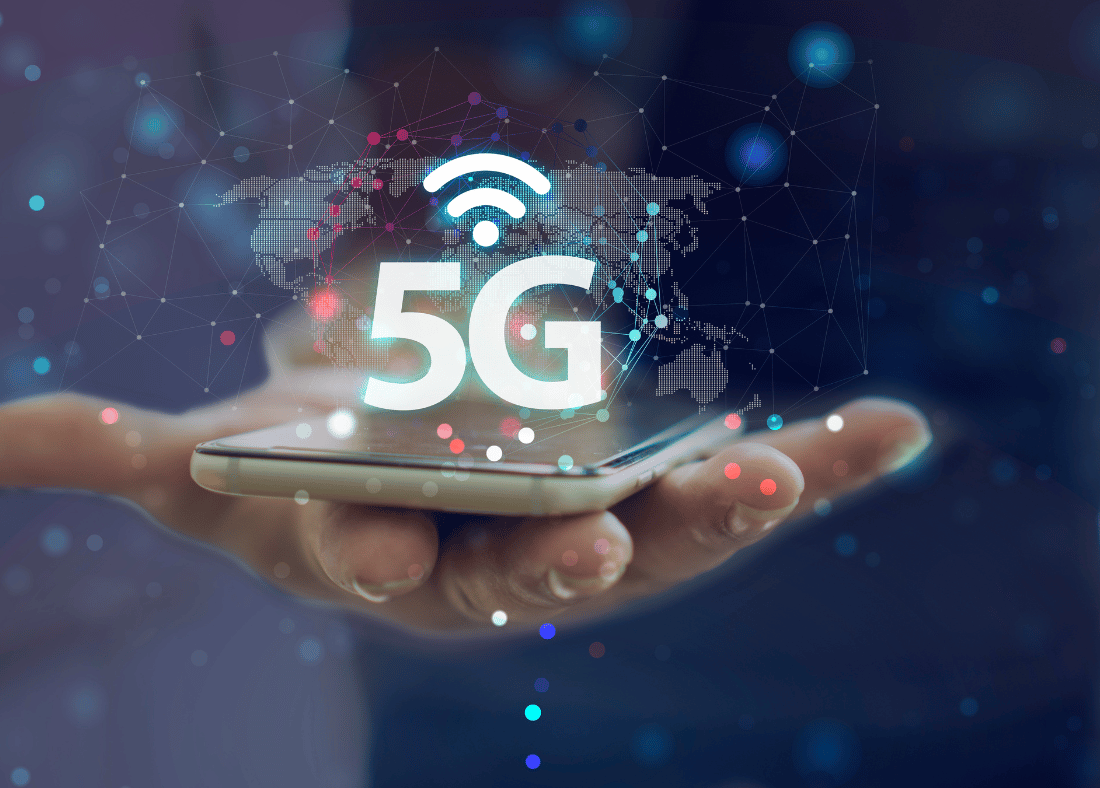Is 5G Bad for the Environment?
Andy Mant
The Internet is essential to the functioning of society. This was made apparent during the COVID-19 pandemic, where having access to the internet was essential for performing daily tasks like grocery shopping, working, teaching children, obtaining medical treatment, reading the news, and having fun.
The dependability of the network is essential to the protection of the population's health and safety.
All this need for faster, dependable, and varied connectivity has intensified the pressure that is being placed on governments to rapidly adopt 5G technology, which is the most recent generation of digital technology.
What is 5G?
About once every 10 years, there is a new generation of wireless mobile technology that is an improvement over the one that came before it. 1G, which was released in the 1980s, was solely capable of supporting voice calls.
2G, which came into existence in the 1990s as cell phones transitioned from analog to digital formats, made it possible to encrypt messages, phone calls, and text messages to keep communications private.
In 1998, 3G technology made it possible to make video calls and access the internet on mobile devices. 4G, which debuted in 2008, enables users to watch high-definition television on their cell phone, participate in video conferences, and play games. Most mobile phones today make use of 3G and 4G technology.
The implementation of 5G began in 2019, and it has the potential to bring better broadband for mobile phones, communication that is both extremely fast and dependable, and connection between machines.
5G will require more cell towers which could have negative impacts to the environment and the amount of ubiquitous radiation. It is expected to be one hundred times quicker than the 4G network.
However, in addition to its increased speed and connectivity, 5G features ultra-low latency, which refers to any delay in communications, and one thousand times more capacity than 4G because it is extending into new frequencies of the spectrum.
This will, in the long term, make it possible to have wireless Internet everywhere, from smart automobiles to IoT devices (internet of things) which can connect all different kinds of equipment and sensors through the Internet and allow them to communicate without the need for human intervention.
The impact on the environment
With the implementation of 5G, there has been a new problem to solve: making sure that this generation of wireless connectivity is good for the ecosystem around it. Many people were concerned about the harmful impacts of electromagnetic radiation 4G base stations on their health and the environment.
Luckily, some companies have taken steps to make sure that 5G wireless networks won't hurt the environment and increase fossil fuels usage, and will, in fact, help it.
5G, like many other technological advances, has the potential to affect the environment in both good and bad ways. Let us begin with the bright side of things.
5G has the potential to cut overall energy consumption. A 5G network, when combined with the Internet of Things (IoT), would make it possible for gadgets to turn themselves on and off automatically based on how much they are being used.
In the meantime, sensors in appliances, transportation networks, buildings, factories, and homes can track how much energy they use and how much they need in real time.
This lets them change how they use energy on the spot to make it more efficient. can also be monitored and evaluated in terms of energy consumption.
As an example, the Columbia Climate School said that the Empire State Building's overall energy costs went down by 38% after smart power meters were put in. This shows that smart cities carbon emissions will almost certainly be reduced.
One of the ways that 5G networks will influence the environment is by reducing the amount of energy used inside buildings. Here are some more things that need to be considered when considering the environmental impact of 5G.
A decrease in emissions of greenhouse gases
If the energy consumption of 5G networks can be lowered, then greenhouse gas emissions can also be reduced. For instance, the Digital Power Plant Software developed by GE has the potential to reduce carbon emissions by 3% and cut yearly fuel use by 67,000 metric tonnes of coal. Ericsson did a study that showed that IoT could reduce carbon emissions by 15% by the year 2030.
Other potential sources of energy
Microgrids might be brought online by 5G and the Internet of Things if a city's main grid was to fail, which would make it simpler to integrate variable renewable energy sources like wind and solar into the grid.
Fewer car emissions
With the help of technology, some businesses were able to keep running during the COVID-19 pandemic. Workers were able to keep in touch with one another using videoconferencing platforms such as Zoom because of the reliable wireless connectivity.
Not only does the 5G wireless network make it feasible for people to communicate when away from the office, but it also decreases the number of people who must drive to the office or fly on business trips.
If more individuals worked from home, there would be fewer people using cars and flying in airplanes, which would reduce greenhouse gas emissions.
In the meanwhile, even if someone had no choice but to drive, 5G can still be beneficial to the environment. Traffic can be kept moving and delays avoided by using real-time data collected by sensors and cameras connected to a 5G network, which can be used to control stop lights.
When there is less congestion and less idling, fuel consumption and emissions from vehicles are both reduced.
Can 5G have harmful effects on the environment?
There is typically a drawback associated with the adoption of new technologies. And 5G is not an exception to this rule. Even though it has already been discussed how 5G might help conserve energy in a number of different ways, there is still the possibility that it could result in an increased carbon footprint, as well as increased emissions.
According to the Information Technology & Innovation Foundation, as of right now, information and communications technology accounts for around 4% of the global consumption of power and 1.4% of the global emissions of carbon. According to a report published by Ericsson, the emergency that will be addressed by 5G will result in an increase in the number of mobile customers. It is anticipated that there will be 5.8 billion mobile subscriptions worldwide by the year 2025, and the business forecasts that 5G will have more than 2 billion users by that time.
In the meantime, it is estimated that there will be 125 billion Internet of Things devices in use around the globe by the year 2030. If such projections turn out to be accurate, by the year 2040, information technology will account for 20% of the total global consumption of power
It is for this reason that any system that is installed must have the highest levels of energy efficiency as possible. If this does not happen, 5G will be detrimental to the environment rather than beneficial in the long term.
With more devices connected to 5G and the internet comes various privacy concerns, that need to be considered.
Remember that data storage centres also require a lot of energy; in fact, they account for roughly 80% of the whole network's consumption. According to the Columbia Climate School, around half of that is devoted to maintaining a cool environment for the equipment. On the other hand, the power consumption of small cell base stations may be up to three times that of 4G base stations.
Understandably, many people worry about the health impacts of 5G. While claims have not been substantiated with evidence yet, as with all new technologies, there can always be an element of doubt.
Because of this, EMF radiation-blocking products are popular, which will protect uses from any potential negative effects on their body and the immediate environment around them. Some people prefer to take a precautionary approach to new technology, rather than wait until data is available.

Increase in redundant and wasted products
If customers want access to 5G networks, they will likely need to acquire a new handset; however, there are several recently released mobile phones that already have this capability.
The rush to buy brand-new 5G phones may result in an increase in greenhouse gas emissions. Making more Internet of Things devices, phones, and small cells will lead to an increase in the need for mining as well as the use of large quantities of non-renewable metals that are difficult to recycle.
In addition, if users buy a phone that is compatible with 5G, they will probably get rid of their old handset unless there is recycling or buyback scheme in that they can participate. If this doesn't happen, the sale of 5G phones will add to the e-waste problem we already have.



